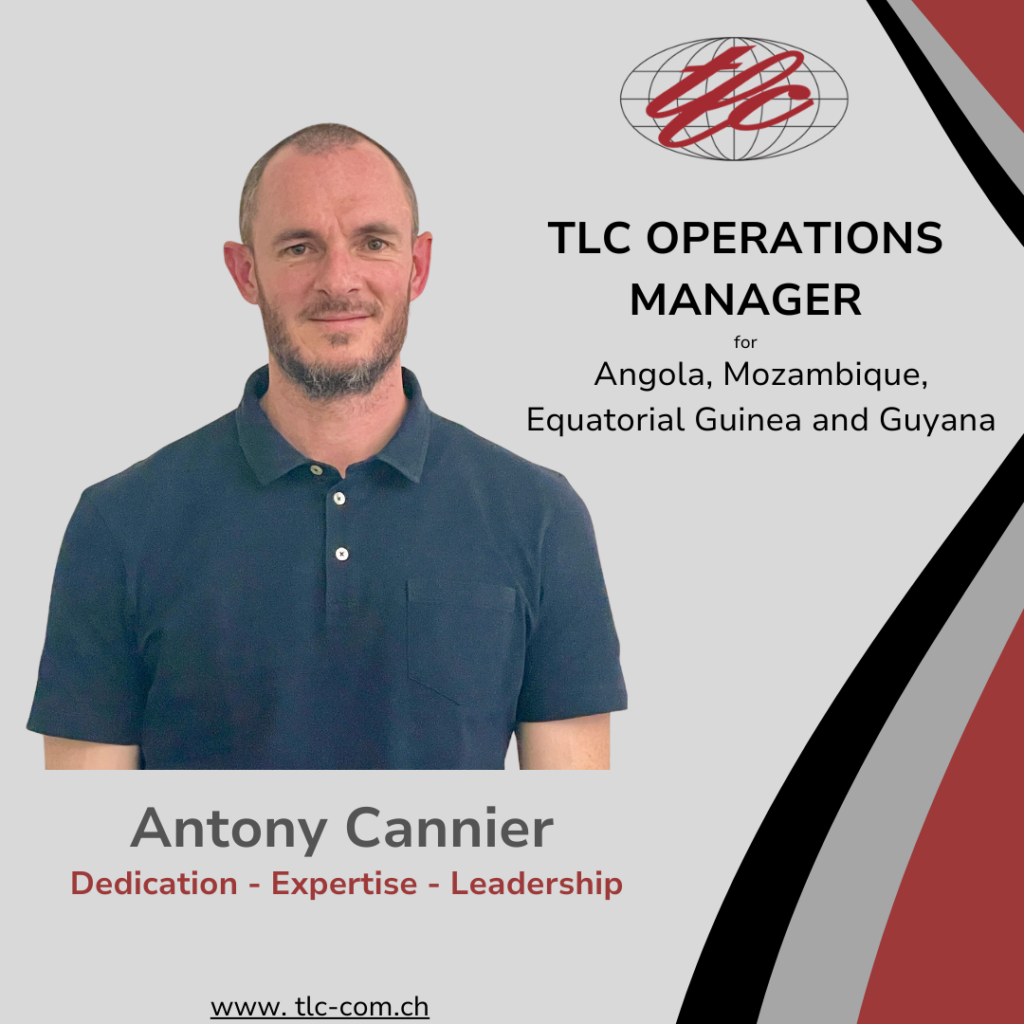
Expanded Role at TLC Group
Read more
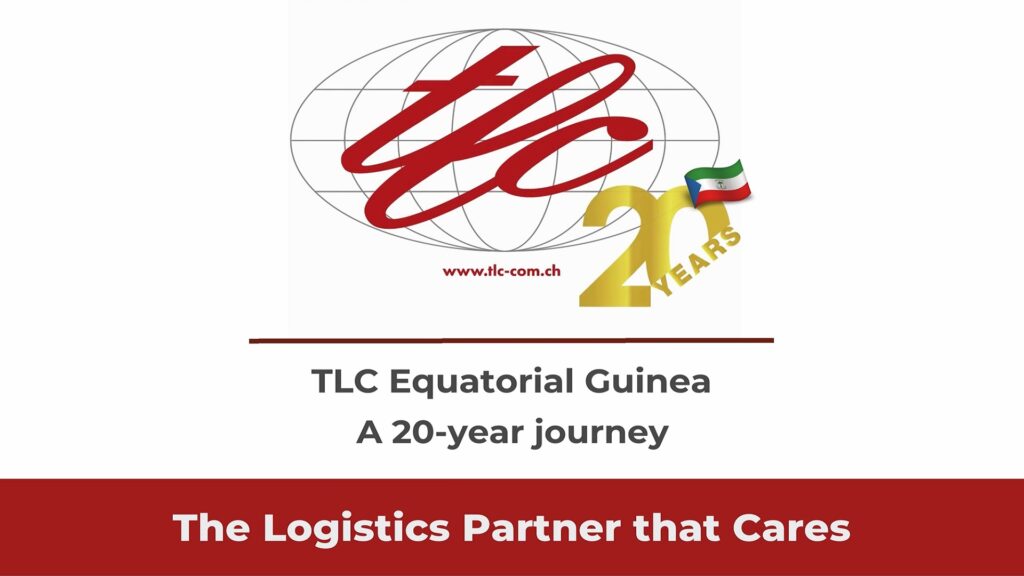
In a remarkable milestone for TLC Equatorial Guinea, the leading logistics company is celebrating two decades of groundbreaking achievements, unwavering commitment to excellence, and a transformative impact on the business landscape.
As part of the commemoration, we took the opportunity of sitting down with the CEO of TLC, Philippe Masserey, to reflect on the remarkable journey that has defined TLC’s success in Equatorial Guinea.
Embarking on this insightful interview, we have the pleasure of gaining a deeper understanding of TLC Equatorial Guinea’s impact on the local economy, its commitment to corporate responsibility, and the innovative strategies that position the company for continued growth in the years ahead.
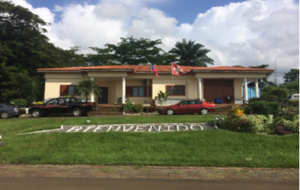
Congratulations on the TLC EG’s 20th anniversary! How does it feel to reach this milestone, and what does it mean to you personally?
PHM: It is a fantastic achievement, and I am very proud of what TLC is today. Equatorial Guinea has been the engine for the development of the entire TLC Group. Allow me to go back to 2001 when I created the company.
Originally TLC was to be a logistics consulting specialist only. This is how it began with our involvement in both Chad and Cameroun for the Chad Cameroon pipeline project. Very rapidly customers asked me to render logistics and ship agency services in those two countries as well as in Ghana and Nigeria.
During 2002 TLC became the agent for Global Offshore, a Houston based company that constructed the Kribi Terminal in Cameroon. It is that same client that triggered the creation of TLC Equatorial Guinea.
Looking back over the past two decades, what do you consider to be the TLC EG’s most significant achievements or milestones?
PHM: I view our journey in EG as an initiation path, marked by distinct levels of accomplishment reflective of the country’s historical development. To elaborate, upon our arrival in 2003, the market landscape could be characterized as monopolistic.
Our initial objective was to break into this monopoly, gain acceptance, and simultaneously cater to the exacting requirements of clients during the Alba phase 2 project. We faced a tight timeframe to establish our reputation and endurance. By mid-2004, we successfully attained the first level, yet considerable efforts remained to validate our standing within the industry.
The second level was reached through the establishment of an office in Luba. This strategic move not only bestowed immediate visibility upon us but also positioned us as the sole agent with a consistently staffed office at the Luba Free Port for an extended period. To this day, TLC continues to serve clients who initially engaged with our services in Luba back in 2004. Subsequently, numerous clients, influenced by their positive Luba experiences, extended their reliance on our services to other countries within the TLC network.
The attainment of Level 3 occurred in 2005 and 2006 when we assumed the role of a shipping agent for product, gas, and crude oil tankers at offshore terminals as well as on shore terminals in Malabo, Luba & Bata.
Level 4 marked our active involvement in significant construction projects in Malabo starting from 2006. The pinnacle, Level 5, was reached in 2010 with the establishment of our office in Bata on the mainland. This expansion aimed to serve the same construction companies operating in the region. For a notable duration, we stood as the exclusive company adeptly catering to both the oil and gas and construction industries in the country with equal and high proficiency.
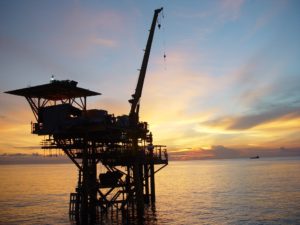
How has TLC EG evolved since its inception, and what were the key drivers of this evolution?
PHM: As I explained, Equatorial Guinea is a very challenging country with the continental part and Bioko Island having distinctive business operations models. We always had the teams in place that were able to adapt with the challenges and have been very active commercially to secure contracts. What I am also very proud of is that we were able to maintain our high-quality services and compliance standards throughout all those years despite the crisis and more recently the Covid pandemic.
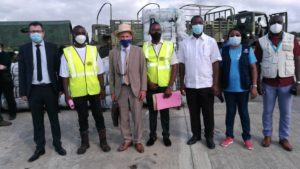
Can you share any memorable or challenging moments TLC EG has experienced in its journey to the 20th anniversary?
PHM: Undoubtedly, the initial contract holds paramount significance. It materialized due to the client’s high satisfaction with our performance, laying the foundation for a robust business relationship built on trust.
Without that inaugural opportunity, the establishment of TLC in Equatorial Guinea would not have been possible.
As CEO, how has your leadership style contributed to TLC EG’s success and growth over the years?
PHM: I am convinced that TLC’s success is rooted in the business philosophy we cultivated over the years, not only in EG but also across the entire group. We boast a dedicated staff at various levels of responsibility, many of whom have been with TLC for a decade or more. Given the nature of our industry, where personal relationships are crucial, our clients value having consistent key contacts to oversee their operations.
What is the vision and mission of TLC EG, and how have they evolved since the early days?
PHM: Our mission and our vision have not changed since the inception of TLC, we have just been better in performing our services over the years in order to improve the overall quality of our services.
« To be the premier logistics partner in Equatorial Guinea’s energy sector, recognized for excellence in delivering tailored and integrated solutions that propel our clients’ success while upholding the highest standards of safety, efficiency, and environmental responsibility. »
In pursuit of our mission, we are committed to innovation, continuous improvement, and the development of our talented team to exceed the evolving needs of our clients in Equatorial Guinea’s dynamic energy landscape.
What do you believe sets TLC EG apart from competitors in the logistics industry?
PHM: In summary, TLC EG distinguishes itself through:
1. Quality and Consistency:
Unwavering commitment to delivering high-quality logistics services consistently, ensuring reliability and meeting client expectations.
2. Proactive Problem Solving:
Proactive approach to identifying and implementing solutions that simplify processes, showcasing a commitment to continuous improvement and client collaboration.
3. Effective Collaboration with Authorities:
Strong emphasis on building and maintaining positive relationships with Equatorial Guinea authorities to execute our operations in an effective and compliant manner.
How has the logistics industry landscape changed since TLC EG’s inception, and how has TLC EG adapted to these changes?
PHM: During the pioneering era, every aspect, from construction to reconstruction, demanded meticulous attention. However, in the present landscape, marked by a more mature market, our adaptability has been crucial. We’ve navigated the evolutionary changes in both the country and the market, ensuring our strategies align with the dynamic demands of the current business environment.
In today’s rapidly evolving business environment, how has TLC EG embraced innovation and technology to stay competitive?
PHM: TLC has proactively embraced innovation and technology to stay competitive in the fast-paced business landscape. One notable initiative is the development of our proprietary ERP system, TIS, which stands as a testament to the company’s commitment to technological advancement. This bespoke system not only streamlines logistics operations but also reflects TLC ‘s adaptability to the evolving needs of the energy sector, especially in the oil and gas industry.
Moreover, TLC has integrated cutting-edge solutions into its services, offering clients a range of innovative tools such as KPIs and Kanban methodologies. These technological implementations not only enhance operational efficiency but also demonstrate the company’s dedication to providing tailored and value-added services to its clients.
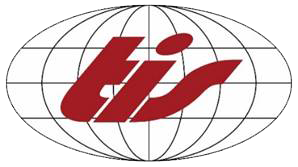
In meeting the demands of its diverse clientele, TLC has also invested in digital solutions for customs brokerage, international freight forwarding, and agency services. The incorporation of meet-and-greet services, visa assistance, and ground transportation support for industry workers further underscores TLC ‘s holistic approach to leveraging technology for the benefit of its customers.
By staying at the forefront of innovation and technology adoption, TLC ensures it remains competitive and well-equipped to navigate the challenges and opportunities presented by the dynamic landscape of the oil and gas industry.
How has TLC EG integrated sustainability and corporate responsibility into its business practices, and what initiatives have been undertaken in this regard?
PHM: Since 2007, well-known companies in the oil industry have reviewed, audited and approved the Group’s management and operational practices as compliant with their compliance standards.
The TLC Group believes in integrity, transparency, and constant communication with its customers on this subject and will continue its efforts, in cooperation with its customers, to prevent and detect corruption in its worldwide operations.
In March 2022, the TLC Group joined the United Nations Global Compact initiative — a voluntary leadership platform for the development, implementation and disclosure of responsible business practices. Our registration as Participant of the initiative can be seen on our profile https://www.unglobalcompact.org/what-is-gc/participants/150557-TLC-SA-Transportation-and-Logistic-Consulting on the UN Global Compact website.
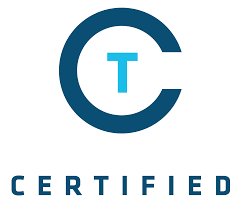
What exciting plans or projects does TLC EG have in store for the year of its 20th anniversary and beyond?
PHM: TLC EG has been entrusted by Island Drilling with the agency and customs brokerage business for their 300 days drilling campaign offshore. This will be a very important project for TLC in 2024 which entails several operations within our range of services.
Our team is agile and is working on other business opportunities for the future. We are here to stay!
What message would you like to convey to employees, customers, and stakeholders as you mark this 20th anniversary?
PHM: As TLC EG celebrates its 20th anniversary, I extend my heartfelt gratitude to our employees, customers, and stakeholders who have been integral to our journey. This significant milestone is a testament to the enduring partnerships and collaborative efforts that have shaped TLC EG into the company it is today.
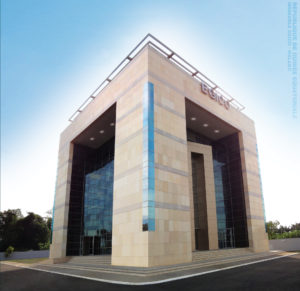
Looking to the future, what do you hope the legacy of TLC EG will be in the next 20 years?
PHM: Looking ahead to the next 20 years, we envisage TLC EG leaving a legacy characterized by:
1. Innovation and Adaptable, Sustainable Practices
2. Industry Leadership and Global Recognition
3. Community Impact
4. Employee Development
5. Client Satisfaction
6. Ethical Business Practices
7. Strategic Partnerships
8. Resilience in the Face of Challenges
By aspiring to these ideals, we aim for the legacy of TLC EG to be a story of sustained growth, positive impact, and enduring excellence in the logistics and energy industries over the next two decades.
Do you have any advice for aspiring entrepreneurs and future leaders based on your experiences and TLC EG’s journey?
PHM: As for any business you must have a passion and a purpose to start with. Then you are to be able to adapt and show innovation in what you do to constantly improve your business.
To build a strong team around you that adopts your ethical leadership and your customer approach.
And finally, be resilient during the many challenges of the life of a company.